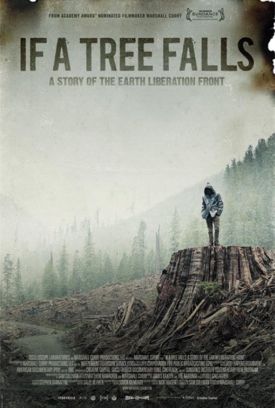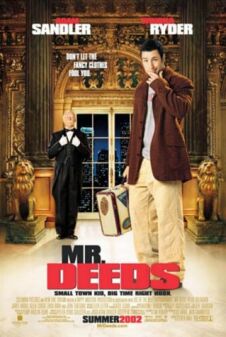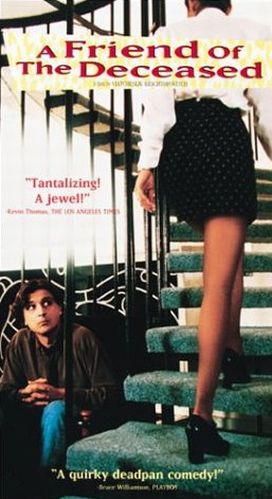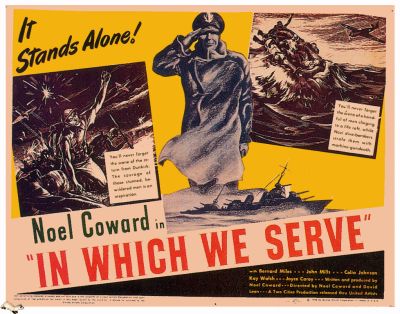If a Tree Falls: A Story of the Earth Liberation Front
The money quote in If a Tree Falls: A Story of the Earth Liberation Front, directed by Marshall Curry and Sam Cullman, comes near the end when the movie’s affable hero, Daniel McGowan, asks rhetorically: “When you’re screaming at the top of your lungs and no one hears you, what are you supposed to do?” Um, how about shut up? That, clearly, is not the answer expected, either by Mr McGowan, who is now serving a sentence of seven years in the federal pen or by the film. His assumption that the sort of extreme environmentalism which led to his participation in a series of arson attacks in the 1990s and early 2000s on businesses and research installations is its own justification remains unchallenged by Messrs. Curry and Cullman. If people don’t “hear” him — by which he means if they don’t do as he says and abandon their lawful businesses and livelihoods in order to flatter his compassion (as he would no doubt describe it) for trees — then those businesses and livelihoods must be destroyed.
Daniel suffers from the “attention must be paid” syndrome, first enunciated by Mrs Willie Loman in Arthur Miller’s Death of a Salesman and since adopted by the “progressive” mind as one of its intellectual cornerstones — that is, the belief that the world owes you a hearing merely because you are you, and you suffer. And, as so often, the “attention must be paid” syndrome is intimately linked to the “right side of history” syndrome so beloved of progressive thinkers like President Obama and Senator Harry Reid. In a democracy, the will of the majority rules, but what if the majority is hostile or indifferent to the progressive agenda? Then the majority must be educated, violently if necessary. In fact, the majority is usually wrong and needs to get used to the idea that it is being disciplined not just by a few socially dysfunctional and overprivileged youths but by that imaginary deity, history, which may be reliably assumed to be on the side of the progressives.
Young Daniel, who was in his mid-20s when he committed the crimes for which he is now incarcerated, was the son of a New York City cop. Dad appears, with an ear stud, long enough to say, admirably, that “I don’t believe in his philosophies but he’s my son and I love him.” He went to Catholic school and appears to have had a normal middle-class childhood. While working for a non-profit helping women victims of domestic abuse in the ‘90s and studying for a graduate degree in acupuncture, Danny (as he is more often called here) went to an environmentalist center where “they played this film that blew my mind.” Oddly, the directors appear to be not at all interested in what the film was or what there was about it that was mind-blowing. As propagandists themselves, they might have been expected to take an interest in such an effective example of their craft. Instead, he hurries on to tell of this city boy’s first experience of the great and beautiful forests of the Pacific Northwest.
“I had never seen with my own eyes what kind of world we lived in,” says Danny, which is wonderfully amusing given how little he appears to know even now of what kind of world we live in. But the movie has little to tell us about Danny’s “philosophies” or political ideas, much more about his human predicament and the fact that he is “trying to get over the shame of making dumb mistakes.” Whether the dumb mistakes were burning down lumber mills and meat-packing plants or getting caught after having done so is not made quite clear. Although he is ostensibly (sort of) penitent for his career as an eco-terrorist, he still evidently thinks that he has some kind of divine right to be heard and his environmentalist agenda to triumph over the forces of reaction which, pending the arrival of the progressive utopia, continue have the law and the majority in their grip. Even if he regrets what he did, he doesn’t regret the intellectual and moral arrogance that made him do it.
But If a Tree Falls seldom allows us to see this side of Danny, who even manages enough self-detachment at one point in the movie to put himself in the place of a bewildered public, wondering why people like him are destroying other people’s property. “What if I burned down what pissed me off?” he imagines “people” saying to themselves. “It sounds kind of crazy. And it is kind of crazy.” Kind of crazy, maybe, but not crazy enough for him to apologize to those whose research, livelihoods and businesses he helped to wreck. He rejects the label of “eco-terrorist” or “terrorist tout court to describe his acts on the grounds that he only destroyed property. “We didn’t try to hurt people.” But people’s lives are bound up with the property they have devoted them to acquiring and improving — and arson even in remote spots always involves a risk of death or injury to firemen or to those who simply happen to be in the wrong place at the wrong time.
Through out the film, we feel that we are being asked to feel sorry for “Danny” as he is torn from his family, his new wife and young child, and sent to do his time in the clink. And we do feel sorry for him. Even Kirk Engdall, the US attorney in Eugene, Oregon, who was instrumental in cracking the case of the Earth Liberation Front’s acts of destruction says he is now more circumspect in his view of the ELFs. “I know now that the world is not black and white,” he says, hitting just the right progressive note and adding: “you gain an insight about how they came to do these things.” So, of course, do we, though it’s not necessarily the same insight or one which would interfere with our resistance to the progressive assumption that tout comprehendre c’est tout pardonner. Making excuses for Danny and his kind is really the purpose of political movies like this one as they to confirm the enlightened in their conviction that history is going their way. And the more such movies there are, the more it seems that history is going their way.
Discover more from James Bowman
Subscribe to get the latest posts to your email.







